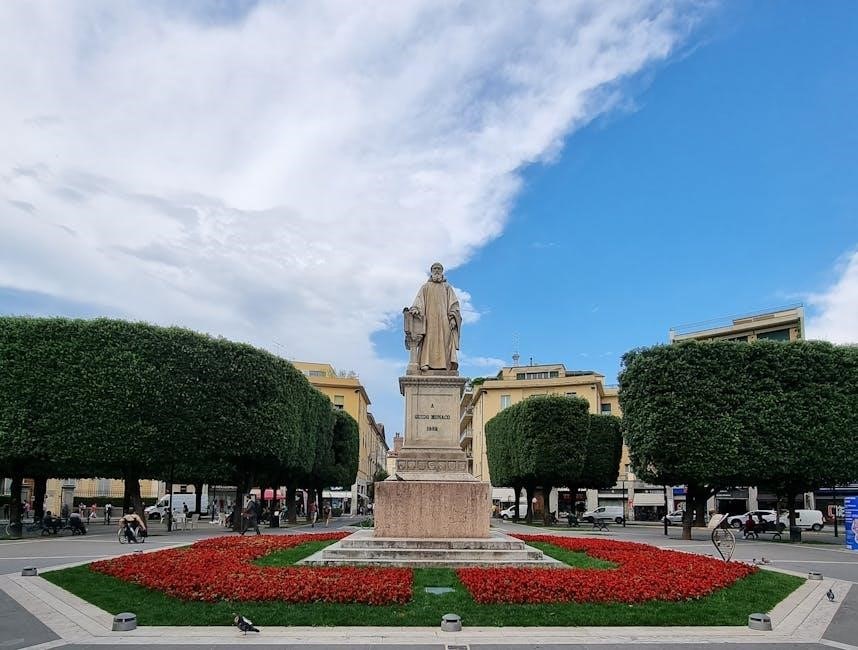Guido Orefice is a Jewish Italian bookshop owner portrayed by Roberto Benigni in the film Life is Beautiful. Known for his optimism and humor, he uses imagination to protect his son during WWII, showcasing the power of hope and resilience in the face of adversity.
1.1. Who is Guido Orefice?
Guido Orefice is a Jewish Italian man living in Tuscany during the onset of World War II. He is a kind-hearted and optimistic individual who owns a small bookshop. Guido is known for his love of life, humor, and imaginative spirit, which he uses to navigate the challenges of the war. He resides with his uncle and later meets his wife, Dora, with whom he has a son, Giosué. Guido’s charming and cheerful demeanor makes him a beloved figure in his community, and his ability to find beauty in life shapes his approach to protecting his family during the Holocaust.
1.2. The Role of Guido Orefice in “Life is Beautiful”
Guido Orefice plays a central role in Life is Beautiful as a father and protector who uses humor and imagination to shield his son from the horrors of the Holocaust. His role is both emotional and symbolic, as he embodies hope and resilience. Guido’s ability to transform the bleak reality of a concentration camp into a game for his son highlights his resourcefulness and love. Through his actions, he becomes a moral guide, teaching his son to find beauty in life despite its darkness. Guido’s character serves as a powerful reminder of the human spirit’s ability to persevere.
1.3. Historical Context of Guido Orefice’s Story
Guido Orefice’s story is set against the backdrop of World War II and the Holocaust, a period marked by immense suffering and persecution. As a Jewish man living in Italy during the war, Guido faces the harsh realities of Nazi occupation and the systematic oppression of Jews; The film Life is Beautiful portrays his journey from the charming life in Tuscany to the horrors of concentration camps. This historical context underscores the resilience of Guido and his family, highlighting the emotional and psychological toll of the Holocaust while emphasizing the strength of the human spirit in the face of unimaginable adversity.
Background of Guido Orefice
Guido Orefice, a Jewish Italian, lived in Tuscany before WWII. He met his wife and had a son, Giosué. The onset of WWII drastically changed his life, leading to imprisonment and separation from his family.
2.1. Early Life and Family
Guido Orefice was born in Tuscany, Italy, into a Jewish family. His early life was marked by a loving and supportive environment, fostering his optimistic and humorous nature. Guido’s family played a significant role in shaping his character, instilling in him a deep love for life and storytelling. Before the war, he worked as a bookshop owner, where his charm and wit endeared him to the community. Guido’s life took a romantic turn when he met his wife, Dora, with whom he shared a profound connection. Together, they had a son, Giosué, who became the center of Guido’s universe.
2.2. Life in Tuscany Before World War II
Guido Orefice lived a peaceful life in Tuscany before the onset of World War II. He resided with his uncle and worked as a bookshop owner, where he charmed customers with his wit and humor. The picturesque Tuscan countryside provided a serene backdrop to his life, filled with love, family, and community. Guido’s days were marked by simplicity and joy, as he nurtured his passion for storytelling and imagination. This idyllic period was instrumental in shaping his optimistic outlook and creative spirit, which later became vital in coping with the challenges of war.
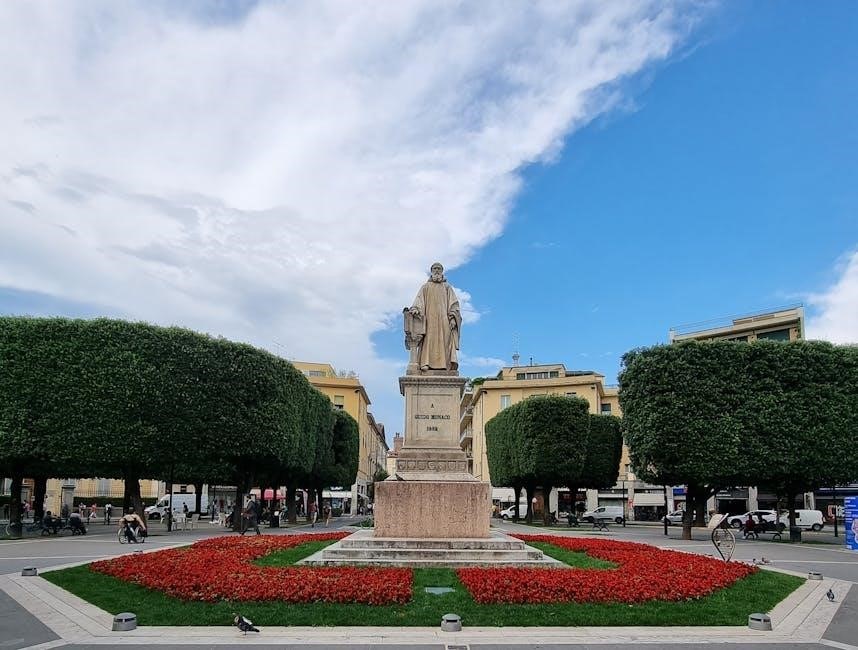
2.3. The Onset of World War II and Its Impact
The onset of World War II drastically altered Guido Orefice’s life. As a Jewish man in Italy, he faced increasing persecution and loss of freedom. The war disrupted his peaceful existence in Tuscany, forcing him to confront harsh realities. Guido’s humor and optimism were tested as he struggled to protect his family. The Holocaust brought unimaginable suffering, separating him from loved ones and forcing him into confinement. Despite the chaos, Guido’s resourcefulness and determination to safeguard his son became his primary focus, showcasing his resilience in the face of unimaginable adversity.
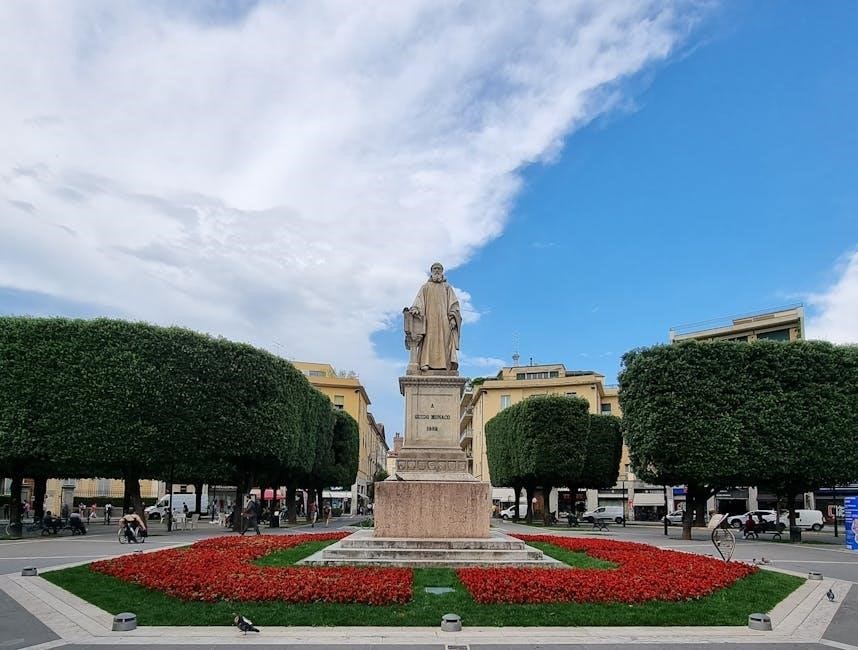
Character Traits of Guido Orefice
Guido Orefice is an optimistic, resourceful, and deeply loving father. He uses humor and imagination to cope with adversity, shielding his son from harsh realities with unwavering protectiveness.
3.1. Optimism and Love for Life
Guido Orefice’s unwavering optimism and love for life are central to his character. Despite the dire circumstances of WWII, he maintains a hopeful outlook, finding beauty in the mundane. His positivity is a shield against despair, inspiring those around him, especially his son. This trait is vividly depicted in the film Life is Beautiful, where Guido transforms the harsh realities of a concentration camp into a game, ensuring his son’s innocence remains intact. His love for life is not just a survival mechanism but a profound celebration of human resilience and joy.
3.2. Humor as a Coping Mechanism
Guido Orefice uses humor as a powerful coping mechanism to navigate the horrors of WWII. In the film Life is Beautiful, he employs wit and satire to mask the harsh reality of their situation, protecting his son from the atrocities of the concentration camp. By turning their struggles into a game, Guido ensures Giosué’s innocence remains intact. His humor not only provides solace but also becomes a form of resistance, showcasing the resilience of the human spirit. This approach underscores the film’s themes of hope and survival, making Guido’s character a memorable and inspiring figure in cinema history.
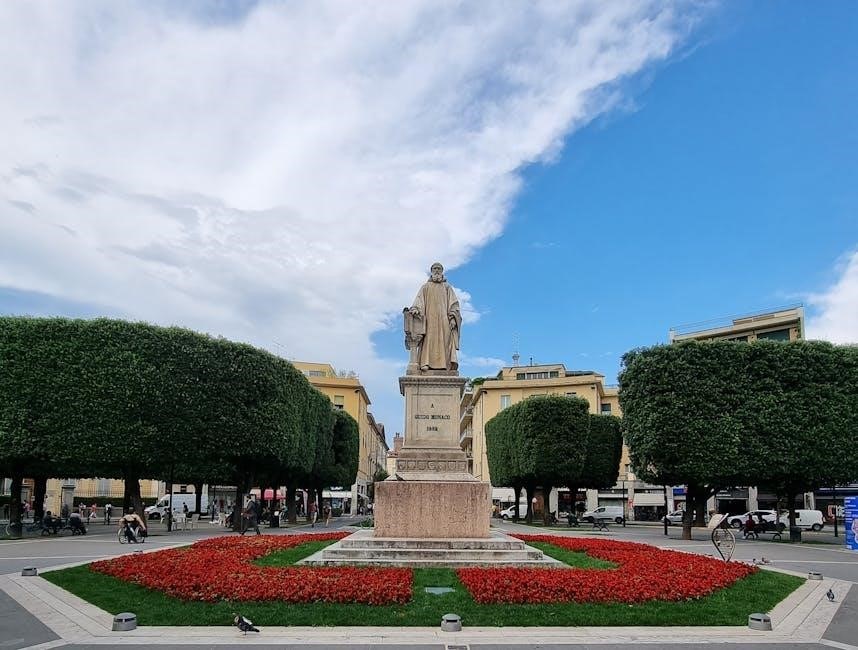
3.3. The Use of Imagination
Guido Orefice’s imagination is a central aspect of his character, serving as both a survival tool and a means to protect his son. In the concentration camp, he transforms the harsh reality into a fantastical game, convincing Giosué that they are on a mission to earn points for a tank. This imaginative approach not only shields his son from the horrors but also helps Guido himself cope with the unbearable circumstances. Through his creativity, Guido creates a sense of normalcy and hope, showcasing the transformative power of imagination in the face of adversity. This trait underscores his resilience and love for life.
3.4. Protective Nature Towards His Son
Guido Orefice’s protective nature towards his son, Giosué, is a defining feature of his character. He goes to extraordinary lengths to shield his child from the harsh realities of their situation, creating a protective bubble of innocence and hope. In the concentration camp, Guido invents games and stories to distract Giosué from the horrors around them, ensuring his son remains unaware of the true nature of their imprisonment. This protective instincts are driven by his deep love and determination to preserve Giosué’s childhood, even in the most dire circumstances. His actions highlight the strength of a father’s devotion and sacrifice.
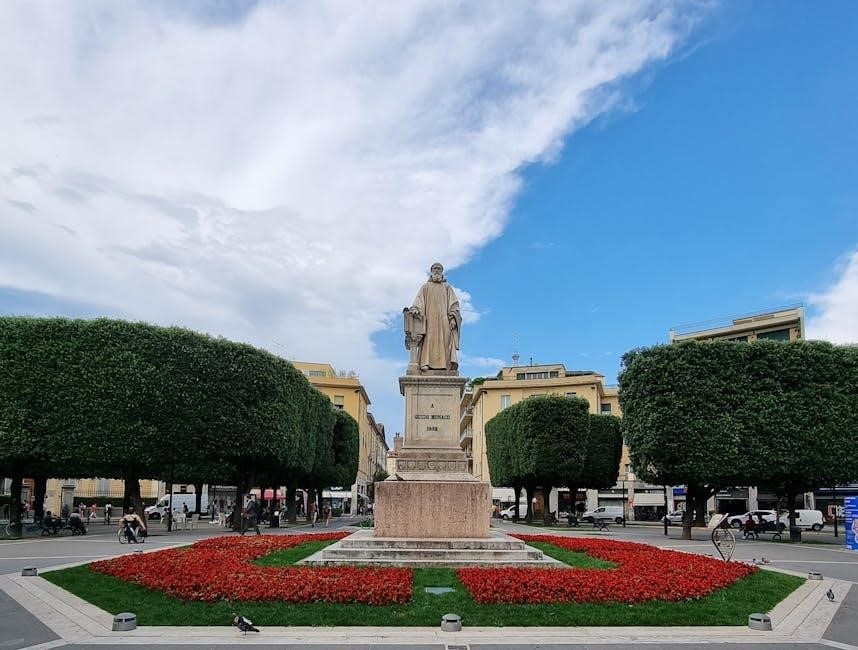
Guido Orefice’s Experiences
Guido Orefice’s experiences in WWII include imprisonment, separation from his family, and life in a concentration camp, where he uses humor and imagination to protect his son.
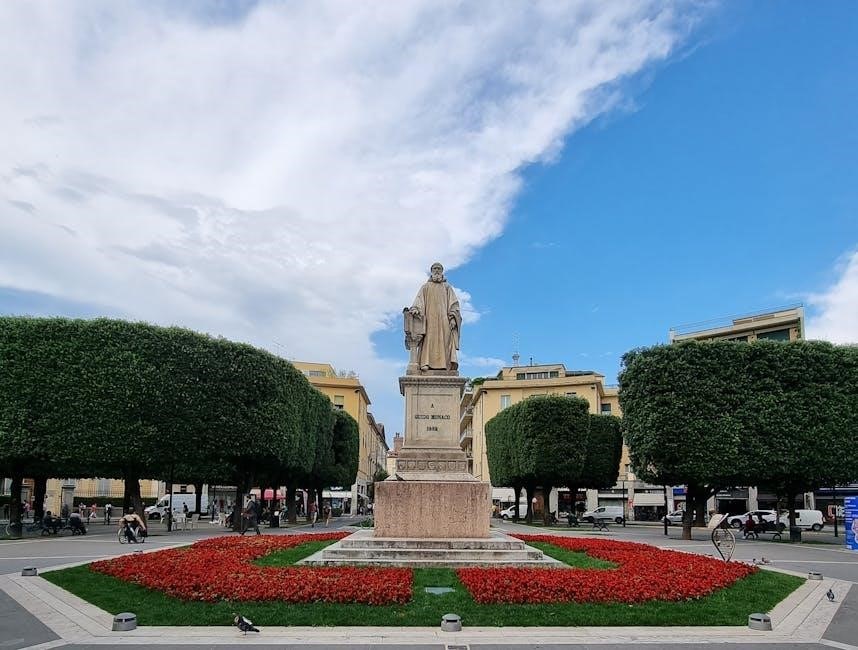
4.1. Initial Imprisonment and Separation from Family
Guido Orefice’s life drastically changes when he is arrested and separated from his family during WWII. Despite his optimism, the harsh reality of imprisonment hits him hard. He is taken from his home in Tuscany and interned in a Nazi camp, leaving his wife and young son, Giosué, behind. The initial days of captivity are overwhelming, as Guido struggles to comprehend the brutality of his surroundings. His imagination and humor, however, begin to emerge as coping mechanisms, helping him endure the separation and the uncertainty of his family’s fate. This period marks the beginning of his emotional and psychological journey.
4.2. Life in the Concentration Camp
Life in the concentration camp is brutal and dehumanizing for Guido Orefice. He faces harsh conditions, forced labor, and constant fear of death. Despite the atrocities surrounding him, Guido employs his imagination to create a sense of normalcy. He humorously explains the camp’s rules to his son, Giosué, turning the horrors into a “game” to shield him from the truth. Guido’s resilience and humor become vital survival tools, allowing him to maintain hope and protect his son from the camp’s cruel realities. His ability to find light in darkness exemplifies the strength of the human spirit in the face of unimaginable suffering.
4.3. Strategies to Protect His Son
Guido Orefice devises creative strategies to shield his son, Giosué, from the harsh realities of the concentration camp. He invents a game where they “score points” by completing tasks, turning the camp into a surreal adventure. Guido ensures Giosué remains unaware of the true horrors, hiding the brutal conditions and dangers. He also prioritizes securing food and safety for his son, often risking his own well-being. Through humor and imagination, Guido creates a protective bubble around Giosué, maintaining his innocence and hope amidst the despair. This selfless dedication highlights Guido’s unwavering love and ingenuity in safeguarding his child.
4.4. The Emotional Toll of the Holocaust
The Holocaust took a profound emotional toll on Guido Orefice, as it did on millions of others. Despite his resilience, Guido faced immense psychological strain, grappling with the constant threat of death and the moral dilemmas of survival. The separation from his family and the brutal conditions of the concentration camp weighed heavily on his spirit. Yet, Guido’s internal strength and determination to protect his son allowed him to endure the unimaginable. The emotional scars of the Holocaust lingered, a testament to the profound human cost of such atrocities, but Guido’s love for his son remained unshaken, guiding him through the darkness.
Relationship Between Guido and His Son
Guido shares a deeply protective and loving relationship with his son, using humor and imagination to shield him from the harsh realities of their situation.
5.1. The Bond Between Guido and Giosué
The bond between Guido and Giosué is rooted in love, trust, and resilience. Guido’s imaginative storytelling transforms their harsh reality into a game, creating a protective shield around his son. This unique connection allows Giosué to maintain innocence amidst the horrors of the Holocaust. Their relationship highlights the strength of paternal love and the power of imagination as a survival tool, making their bond a central theme in Life is Beautiful.
5.2. Shielding Giosué from the Harsh Reality
Guido’s protective nature shines as he shields Giosué from the brutality of their circumstances. By transforming their concentration camp experience into a fantastical game, Guido ensures his son remains innocent and hopeful. His imaginative storytelling and humor create an emotional shield, protecting Giosué from the horrors around them. This selfless act underscores Guido’s deep love and determination to preserve his son’s childhood, even in the most dire conditions. Their bond becomes a source of strength, highlighting the resilience of the human spirit in the face of unimaginable adversity.
5.3. The Emotional Journey of the Father-Son Duo
The emotional journey of Guido and Giosué is a profound exploration of love, hope, and resilience. Their bond deepens as they navigate the harsh realities of the Holocaust, with Guido’s humor and imagination serving as a protective shield for his son. The film captures the emotional highs and lows of their relationship, from moments of joy and laughter to the overwhelming challenges they face. Through their shared experiences, the audience witnesses the strength of their connection and the enduring power of a father’s love, which becomes a beacon of hope in the darkest of times.
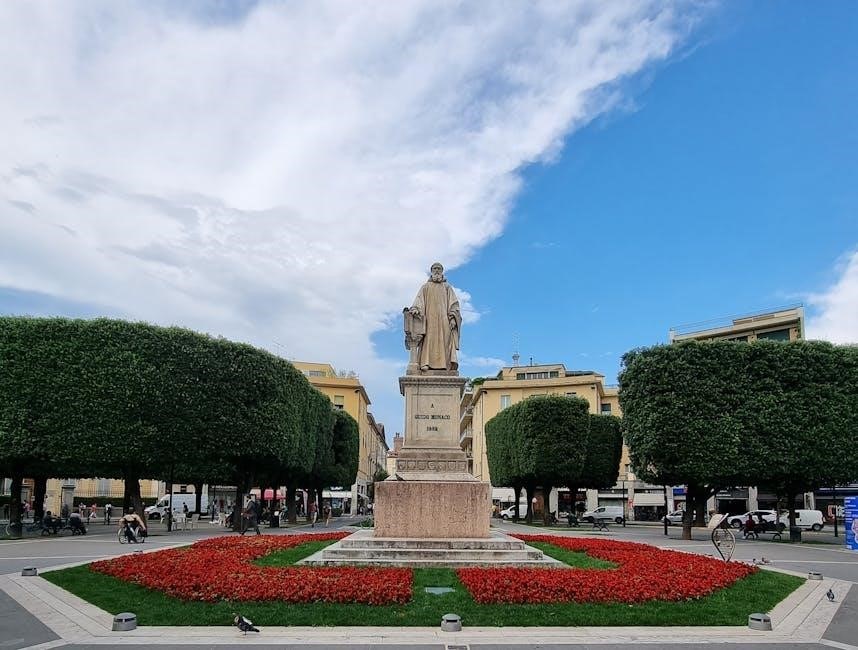
Themes in “Life is Beautiful”
The film explores themes of hope, resilience, and humor as survival tools, while highlighting the profound impact of the Holocaust on individuals and families.
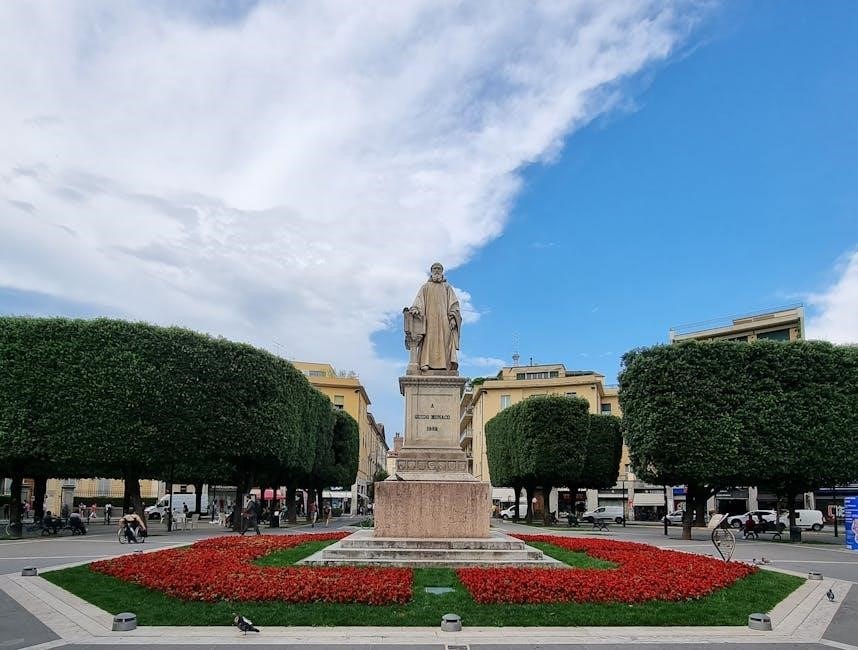
6.1. Hope and Resilience
Hope and resilience are central themes in Life is Beautiful, as Guido Orefice exemplifies these qualities. Despite the harsh realities of a concentration camp, Guido maintains an optimistic outlook. He transforms the brutal environment into a game for his son, Giosuè, shielding him from the truth. This resilience not only helps him survive but also inspires those around him. Through his unwavering hope, Guido demonstrates the human spirit’s ability to endure even in the darkest times, leaving a lasting impact on audiences worldwide.
6.2. The Holocaust and Its Impact
The Holocaust serves as the backdrop for Guido Orefice’s story, illustrating its devastating impact on Jewish families. Separated from his wife and forced into a concentration camp with his son, Guido faces unimaginable horrors. The film portrays the brutality of the regime while highlighting the emotional toll on victims. Despite the atrocities, Guido’s resilience and imagination serve as a shield for his son, Giosuè, demonstrating the human capacity to endure even in the darkest times. The Holocaust’s legacy is deeply intertwined with Guido’s journey, offering a poignant reminder of its historical significance and personal cost.
6.3. Humor as a Survival Tool
In Life is Beautiful, humor becomes a vital survival mechanism for Guido Orefice. Despite the bleakness of the Holocaust, Guido uses wit and imagination to shield his son from the harsh reality. His playful jokes and creative storytelling transform the concentration camp into a game, protecting Giosuè from despair. This approach not only preserves hope but also highlights the resilience of the human spirit. Jewish humor, often tinged with tragedy, serves as a coping mechanism, allowing Guido to maintain dignity and find light in darkness, ultimately inspiring others to endure the unimaginable.
6.4. The Power of the Human Spirit
Guido Orefice’s story exemplifies the indomitable power of the human spirit. Despite the horrors of the Holocaust, Guido’s unwavering optimism and creativity inspire hope. By turning the concentration camp into a game for his son, he demonstrates extraordinary resilience. His ability to find beauty in despair and maintain dignity in the face of brutality underscores the strength of the human spirit. This theme resonates deeply, showing how hope and imagination can sustain individuals through even the darkest times, ultimately triumphing over adversity and leaving a lasting legacy of courage and inspiration.
Roberto Benigni’s Portrayal
Roberto Benigni’s portrayal of Guido Orefice is deeply emotional and heartfelt, capturing the character’s optimism, humor, and resilience. His performance vividly brings Guido’s story to life.
7.1. Benigni’s Performance as Guido Orefice
Roberto Benigni’s portrayal of Guido Orefice in Life is Beautiful is widely acclaimed for its emotional depth and authenticity. Benigni masterfully captures Guido’s optimism, humor, and resilience, bringing the character to life with a perfect balance of charm and vulnerability. His performance transcends mere acting, becoming a heartfelt tribute to the human spirit. Critics praise Benigni’s ability to convey the complexity of Guido’s emotions, making the character relatable and endearing. His acting not only highlights Guido’s strength but also the fragility of a father trying to protect his son in unimaginable circumstances.
7.2. The Inspiration Behind the Character
Guido Orefice’s character was inspired by the resilience and humor found in Jewish Italian culture during WWII. Roberto Benigni crafted Guido to embody hope and optimism, blending humor with the harsh realities of the Holocaust. The character reflects the human spirit’s ability to find beauty in ugliness, inspired by real-life stories of survivors who used humor as a coping mechanism. Benigni drew from Italy’s rich tradition of making the best of dire situations, creating a universally relatable figure. Guido’s essence lies in his ability to shield his son from horror through imagination, making him a symbol of enduring hope and love.
7.3. Critical Reception of Benigni’s Acting
Roberto Benigni’s portrayal of Guido Orefice received widespread acclaim for its emotional depth and nuanced humor. Critics praised his ability to balance tragedy with comedy, creating a character both heartwarming and heartbreaking. Benigni’s performance was hailed for its authenticity and sensitivity, earning him an Academy Award for Best Actor. His depiction of Guido’s unwavering optimism and protective love for his son resonated deeply with audiences. The role showcased Benigni’s versatility as an actor, blending pathos and humor seamlessly. His performance remains iconic, defining the film’s enduring emotional impact and cementing Guido Orefice’s place in cinematic history.
Historical and Cultural Significance
Guido Orefice’s story highlights the Holocaust’s impact and the resilience of Jewish humor, offering a cultural reflection on survival and hope during one of history’s darkest times.
8.1. Jewish Humor and Its Tragic Elements
Jewish humor, as seen through Guido Orefice’s character, blends wit with tragedy, reflecting the community’s resilience. It serves as a coping mechanism, masking pain with laughter while preserving hope and identity. This duality, where humor coexists with sorrow, is a testament to the Jewish experience during the Holocaust. Guido’s antics, though funny, underscore the harsh realities of their situation, making the tragedy more poignant. This unique humor becomes a survival tool, allowing characters like Guido to maintain their humanity in inhumane conditions, leaving a lasting cultural and emotional impact on audiences.
8.2. The Holocaust in Italian Cinema
Italian cinema has often explored the Holocaust, with Life is Beautiful standing out for its unique approach. The film balances the atrocities of the Holocaust with moments of hope and humor, offering a distinct perspective. Guido Orefice’s story, set in Tuscany, highlights the Italian Jewish experience, blending cultural nuances with universal themes. This approach has resonated deeply, making the Holocaust more accessible while preserving its historical gravity. The film’s success underscores Italian cinema’s ability to portray such sensitive topics with both respect and originality, leaving a lasting impact on global audiences and cinematic narratives about the Holocaust.
8.3. The Film’s Impact on Audiences Worldwide
Life is Beautiful has deeply moved audiences globally with its poignant blend of hope, humor, and tragedy. Guido Orefice’s story resonates universally, transcending cultural boundaries. The film’s ability to balance the horrors of the Holocaust with moments of beauty and joy has left viewers emotionally stirred. Its global success, including Academy Awards, highlights its universal appeal. Audiences have praised Roberto Benigni’s portrayal of Guido, finding inspiration in his resilience and love. The film’s legacy lies in its ability to evoke both tears and smiles, offering a powerful reminder of the human spirit’s capacity to endure and find light in darkness.
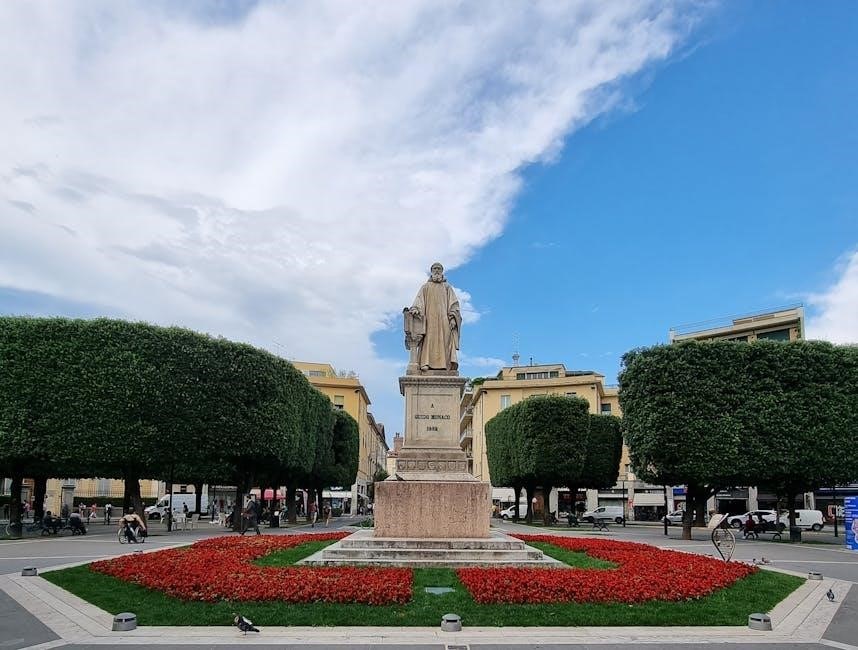
Legacy of Guido Orefice
Guido Orefice’s story, portrayed by Roberto Benigni, has left a lasting impact on cinema and culture. His resilience and hope inspire audiences, making him a timeless symbol of the human spirit’s strength and beauty.
9.1. Influence on Modern Cinema
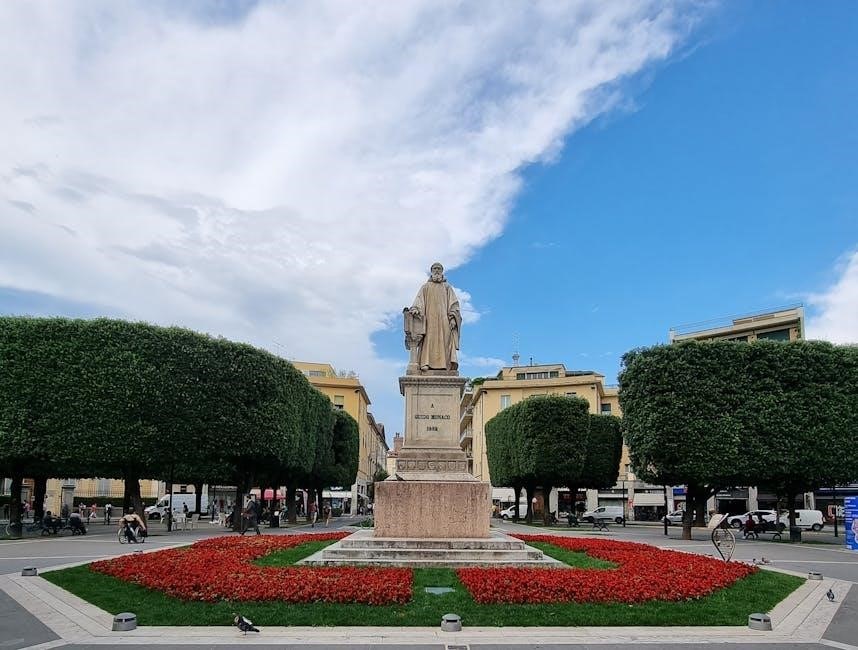
Guido Orefice’s story in Life is Beautiful has profoundly influenced modern cinema by showcasing the power of hope and humor in the face of adversity. The film’s unique blend of tragedy and comedy has inspired filmmakers to explore complex emotional narratives. Its success demonstrated the impact of blending historical drama with personal, heartfelt storytelling, encouraging creators to tackle sensitive topics with nuance. Additionally, the film’s educational use in classrooms worldwide has cemented its role in fostering empathy and understanding of historical events, making it a timeless example of cinema’s ability to connect with audiences on a deeper level.
9.2. Educational Use of the Film
The film Life is Beautiful, featuring Guido Orefice, is widely used in educational settings to teach students about the Holocaust, tolerance, and resilience. Educators often screen the movie to help young audiences understand the historical context of WWII and the human experience during such tragic events. Its balance of emotional depth and hopeful messaging makes it a powerful tool for fostering empathy and critical thinking. The film also encourages discussions on the importance of humor and imagination as coping mechanisms, providing students with a unique perspective on survival and the human spirit during times of adversity.
9.3. Cultural Icon Status of Guido Orefice
Guido Orefice has become a cultural icon, symbolizing hope, resilience, and the power of imagination. His story, portrayed by Roberto Benigni in Life is Beautiful, transcends the film itself, inspiring global audiences with its universal themes. The character’s ability to find beauty in despair resonates deeply, making him a timeless figure in modern culture. Guido’s humor, optimism, and unwavering protection of his son have cemented his place in cinematic history, ensuring his legacy endures as a symbol of the human spirit’s capacity to overcome even the darkest challenges.
Guido Orefice’s journey in “Life is Beautiful” highlights resilience and hope. His imagination shields his son from the Holocaust’s horrors, inspiring audiences. The film’s enduring message of hope and human strength resonates globally, making Guido a cultural icon.
10.1. Summary of Guido Orefice’s Journey
Guido Orefice, a Jewish Italian bookshop owner, faces the challenges of WWII with unwavering optimism. Using his imagination, he shields his son from the harsh realities of their internment in a Nazi concentration camp. Despite the emotional toll of the Holocaust, Guido’s humor and resilience inspire hope. His journey highlights the power of the human spirit and the enduring message of “Life is Beautiful.” Guido’s story remains a testament to love, imagination, and survival during one of history’s darkest periods.
10.2. The Enduring Message of “Life is Beautiful”
The enduring message of “Life is Beautiful” lies in its powerful portrayal of hope and resilience in the face of unimaginable adversity. Through Guido Orefice’s journey, the film illustrates how humor and imagination can serve as potent tools for survival, transforming even the darkest moments into opportunities for connection and understanding. This universal theme resonates across cultures, reminding audiences of the strength of the human spirit and the importance of finding light in the midst of tragedy. The film’s ability to balance heartbreak with joy ensures its message remains timeless and deeply impactful.
10.3. Guido Orefice’s Place in History
Guido Orefice’s story, as portrayed in “Life is Beautiful,” has cemented his place in historical and cultural narratives. His resilience and creativity in the face of the Holocaust inspire reflections on hope and humanity. As a cultural icon, Guido symbolizes the enduring strength of the human spirit, transcending the horrors of WWII. His legacy reminds future generations of the importance of hope, humor, and imagination as survival tools. Guido’s story, intertwined with the broader context of Jewish humor and Italian cinema, continues to educate and move audiences worldwide, ensuring his place in the collective memory of history.
